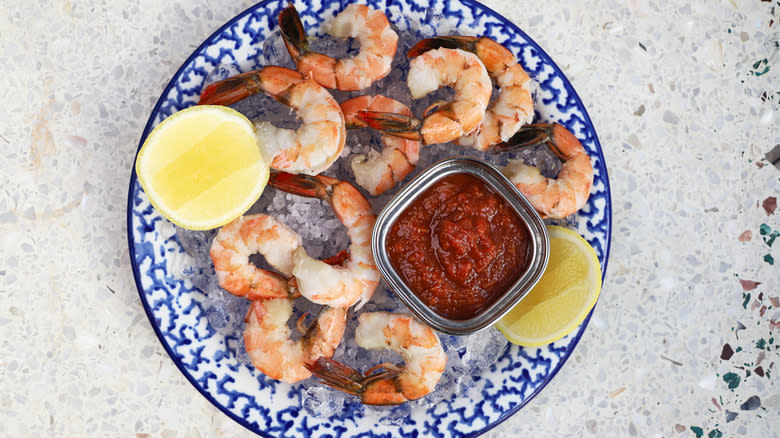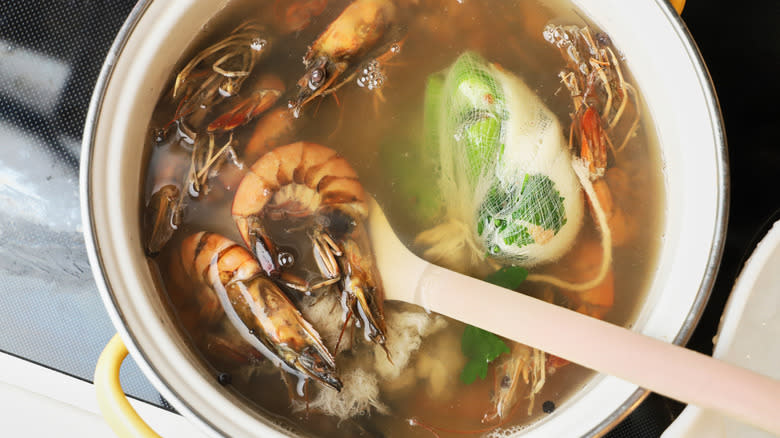How To Cook The Main Ingredient For Shrimp Cocktail

We've all been there before: You're at a party with an admirable spread of food, and crowning the buffet is a gorgeous, icy-cold shrimp cocktail. You load your plate up with plump crustacean tails and spicy horseradish-tinged sauce, only to take a bite and hear that metaphorical sad trombone of disappointment sound out. The shrimp is wan, flavorless, and spongy. What should be a celebration of sweet shellfish is nothing more than an insipid means of conveyance for cocktail sauce. But it doesn't have to be this way. The problem lies in undue confidence people have in how easy it is to cook shrimp, and it is, but there is plenty of room for error. Just a little bit more effort and know-how, though, can be the difference between shrimp that fall flat and shrimp that sings.
First off, boiling shrimp is never in order. The sensitive meat requires a gentle approach. That's why we recommend quickly poaching the shrimp until just done by bringing liquid to a boil then removing it from the heat before adding the shrimp. It also helps to flavor the water with aromatics tied in a bundle. Our go-to combo includes, parsley, garlic, peppercorns, onion, celery, and carrot for a poaching medium that imbues the shrimp with a depth of flavor.
Read more: 15 Different Ways To Cook Fish
Poaching Playfully

With the basics of gentle, quick cooking and flavor-rich poaching liquid established, you can begin to play with the shrimp cocktail recipe to achieve your desired results. There are myriad ways that you can influence the shrimp during the cooking process, and none are more classic than by using court bouillon to cook them through. This French staple for poaching seafood and poultry is a blend of water, white wine, peppercorns, leeks, celery, carrots, and herbs such as thyme and bay leaf. It adds light aromatics and a slight bite of acid to whatever is cooked in it, and court bouillon cooked shrimp work ably with the sweet, tart heat of cocktail sauce.
For flavors found closer to home, try adding to the poaching liquid that Baltimore staple, Old Bay seasoning. Featuring mild heat and redolent of warming spices like cinnamon, the shrimp will have the bold flavor that generally accompanies crab in Maryland. Consider adding a touch more to your cocktail sauce to underline the flavor. If you want to really amp up the shrimp taste, consider leaving the shells on while poaching your shrimp. Not only does this protect the delicate meat from overcooking as the shells act as a natural barrier that mitigates the heat and keeps moisture in, but it also imparts a much richer seafood flavor. Couple this tip with a robust poaching liquid and a delicate approach to cooking, and you'll have a shrimp cocktail that shines.
Read the original article on Tasting Table.
